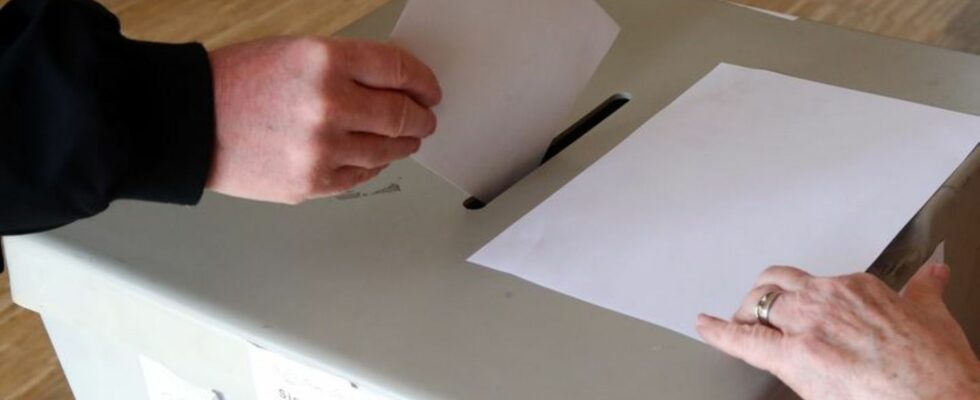Choose
Local elections in Thuringia: crisis or party for the AfD?
For Thuringia, today is a large-scale local election. Photo
© Bodo Schackow/dpa
District administrators, mayors, local parliaments: Thuringians will decide on Sunday who will be responsible for politics on their doorstep in the future. The AfD wants success, but what consequences will its scandals have?
It is a first mood test for the final in autumn: In In Thuringia, people now elect district administrators, mayors and local parliaments.
Three months before the state election, the focus is primarily on the AfD’s performance. Last year, the party led by right-wing extremist Björn Höcke won its first district administrator post in Germany in Sonneberg in southern Thuringia, but then narrowly failed several times in further local elections in Thuringia. In addition, it is completely unclear whether and how the recent scandals surrounding the AfD’s European election candidates Maximilian Krah and Petr Bystron will have an impact. The Thuringian AfD is classified as definitely right-wing extremist by the state’s Office for the Protection of the Constitution and is being monitored.
For Thuringia, these are large-scale local elections: only every 30 years do so many local elections take place at the same time. Around 1.7 million people are called to vote, and 16- and 17-year-olds are also allowed to vote. Thuringia has been governed by Germany’s only left-wing prime minister, Bodo Ramelow, for almost ten years, with a brief interruption, but the CDU has always been the top dog in the local authorities, especially in rural regions: of the 13 districts up for election, the CDU has so far provided the district administrator in eight. There are also 94 (mayoral) posts up for grabs, including all five of the independent cities.
AfD results decisive for majority situation
In addition, the district councils and city councils as well as the municipal councils will be elected. Here, too, the AfD results are being watched with excitement: If, for example, it achieves a majority in Sonneberg, the AfD district administrator there, Robert Sesselmann, could govern.
The approval practices of the electoral committees had caused some irritation in the run-up to the election. In Hildburghausen in southern Thuringia, for example, a nationally known right-wing extremist was on the ballot paper in the district election.
Some observers had interpreted an internal party dispute in the Saalfeld-Rudolstadt district as a power struggle within the AfD, where two competing AfD lists are on the ballot on Sunday. State party leader Höcke does not support the list with the official AfD name, but rather the AfL list – Alternative for the District. The local CDU and the state AfD have already signaled that they may want to contest the election because of the two lists. The Thuringian AfD sees the local dispute as a nuisance, and fears that the lists could divide the electorate.
AfD’s national political crises cast a shadow on the election campaign
It is not the AfD’s only problem in this election. The party recently slipped into a crisis at the federal level. After comments by the AfD’s European election lead candidate Krah about the SS, all AfD MEPs were excluded from the right-wing ID group in the European Parliament. In addition, the 47-year-old Saxon is under pressure because of the espionage scandal involving an employee and because of his proximity to Russia and China. The number two on the AfD’s European election list, Bystron, is being investigated by the Munich public prosecutor’s office on suspicion of bribery and money laundering.
Thuringia’s AfD leader Höcke is also involved in legal disputes. On May 14, he was sentenced by the Halle Regional Court to a fine for using a National Socialist slogan. The verdict is not yet final; Höcke’s defense attorneys have filed an appeal. The 52-year-old, who was born in North Rhine-Westphalia, still faces further proceedings – including a trial on charges of incitement to hatred at the Regional Court in Mühlhausen.

